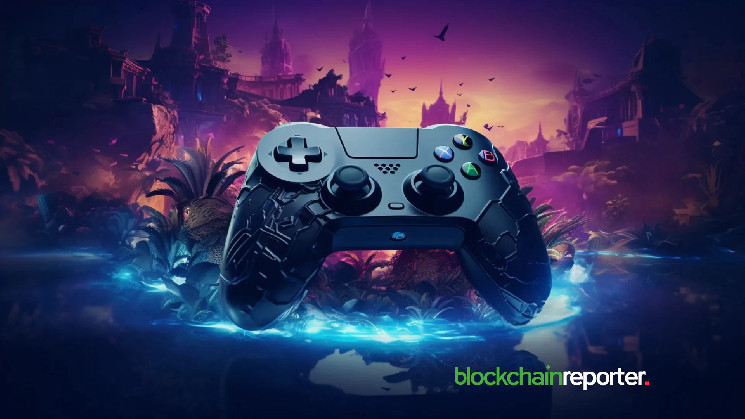Introduction to Blockchain’s Revolution in Gaming The integration of blockchain technology within the gaming sector signifies a profound metamorphosis in the paradigms of game development, deployment, and player interaction. Blockchain, with its immutable ledgers, consensus algorithms, and cryptographic assurances, provides a critical infrastructural backbone for the gaming industry’s evolution. This pioneering technology paves the way for the advent of decentralized gaming ecosystems, wherein smart contracts supplant traditional centralized administration. This progression not only democratizes the gaming experience but also institutes mechanisms for verifiable game fairness, ownership of non-fungible tokens (NFTs), and the integrity of cryptographic transactions, thus redefining the concept of player sovereignty in virtual domains.
Decentralization Ascendant
The New Gaming Ecosystems Decentralized gaming platforms represent the industry’s shift towards independence from centralized authoritative entities, harnessing the power of blockchain’s inherent decentralization and the automation capabilities of smart contracts. These platforms signal a movement towards a new paradigm wherein game logic, asset provenance, and economic exchanges are regulated by immutable smart contracts on a distributed ledger infrastructure. This removal of intermediaries ensures a transparent, auditable, and equitable gaming environment, addressing the traditional concerns regarding opaque governance and trust. It marks a significant departure from conventional frameworks, heralding an era of enhanced player empowerment and equitable stakeholder participation within gaming economies.
Blockchain’s Boons
According to insights from mycasinogames.com and similar platforms in the online gaming and gambling industry, Fair Play and Secure Transactions Blockchain technology confers essential advantages to the gaming sphere, chiefly through mechanisms that guarantee verifiable fairness and the security of transactions. The implementation of cryptographic algorithms and consensus methodologies intrinsic to blockchain enables the verification of fair gameplay, allowing participants to independently ascertain game outcomes through transparent ledger records. Concurrently, blockchain ensures the security of transactional integrity and the authenticity of asset provenance through cryptographic hashing, facilitating tamper-resistant record-keeping. This infrastructure not only augments security but also fosters the emergence of a novel digital economy within gaming ecosystems, where in-game assets and activities have real-world economic implications.
Navigating the Challenges
Scalability and Adoption Despite the transformative promise of blockchain, its amalgamation with gaming confronts certain obstacles. Scalability, a facet of the blockchain trilemma concerning transaction throughput and latency, stands as a formidable barrier to mainstream adoption in gaming. High-demand scenarios necessitate innovations such as layer-2 scaling solutions, sharding, or alternate consensus algorithms to balance transactional throughput with the principle of decentralization. Additionally, the complexity associated with understanding blockchain technology and digital currencies presents a significant obstacle to broad player engagement. Overcoming these challenges is crucial for blockchain-enabled gaming platforms to fulfill their disruptive potential fully.
Frontiers of Innovation
Blockchain Gaming Platforms Unveiled Platforms such as Decentraland and The Sandbox epitomize the disruptive influence of blockchain on gaming, illustrating the technology’s capability to engender player-governed, economically dynamic virtual realms. These ecosystems utilize Ethereum-based smart contracts, empowering players to create, possess, and monetize virtual assets and experiences as NFTs. The integration of DeFi (Decentralized Finance) principles within Axie Infinity presents another dimension of blockchain’s potential, amalgamating gameplay with mechanisms for cryptocurrency earnings, thus highlighting the economic foundations of the value proposition of blockchain gaming.
Prognostications
The Blockchain Gaming Horizon The projected path of blockchain within the gaming industry foresees a future brimming with innovation, marked by elevated game integrity, economic inclusiveness, and enhanced player autonomy. Expected advancements in blockchain technology, such as zero-knowledge proofs, sidechains, and interoperability protocols, aim to mitigate current limitations related to scalability and user accessibility. The ongoing integration of DeFi and NFTs with gaming suggests the emergence of an ecosystem where games transcend their traditional entertainment role, becoming platforms for economic participation and asset creation, thus reimagining the confines of digital and economic interactions.
This expert-level exposition explores the intricate technicalities and transformative impacts of blockchain on the gaming industry, shedding light on the subtle challenges and revolutionary potentials intrinsic to decentralized gaming platforms.







Leave a Reply